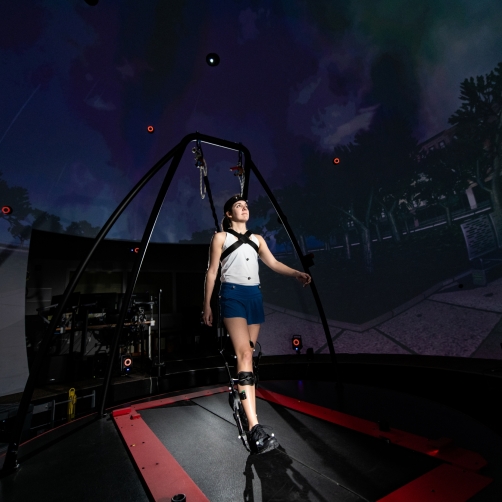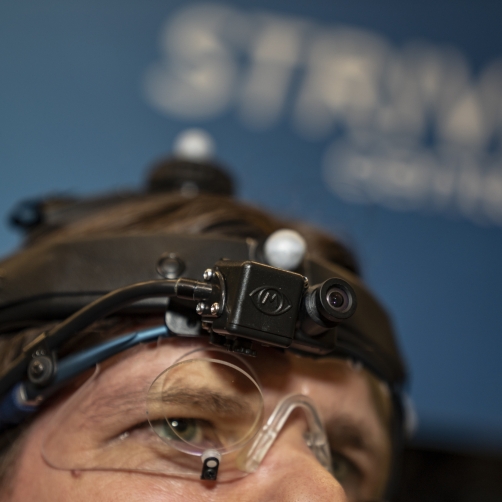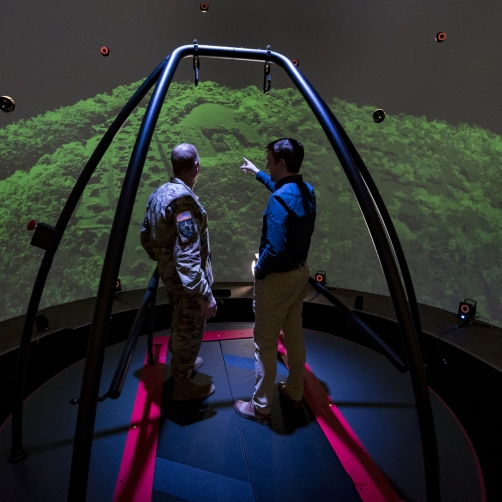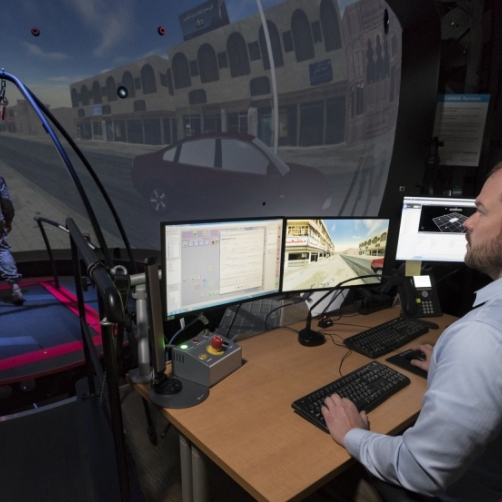
STRIVE Mission Areas
Activities at the STRIVE Center focus on four areas: clinical research, technology development, operational excellence, and training for success.
We encourage to you to contact us to learn more about the STRIVE Center.

Clinical Research
The STRIVE Center's CAREN system offers a unique platform for clinical research by combining exceptional flexibility and precision of prescribed sensory perturbations with the simultaneous collection of multimodal biomechanical and physiological data. This real-time system allows clinicians and researchers to tailor training and rehabilitation protocols to individual patients. Key abilities within the STRIVE Center’s foundational and applied clinical research programs include quantifying movement, joint loading, muscle activity, balance, physiological responses, and cognitive performance.

Technology Development
Field testing is essential to rigorously evaluate many human optimization techniques and emerging wearable technologies, such as exoskeletons, physiological status monitors, and heads-up displays. The standard laboratory setting lacks many aspects of the real world that are often not considered during the design and development of technologies. A physically and visually immersive environment, such as the CAREN system, provides a realistic testing platform for systematic and rapid technology evaluation even during early design phases while capturing many gold-standard laboratory metrics. Data from such testing provides constructive feedback to developers and enriches the technology development process.

Operational Excellence
In challenging operational environments, field-site experience is often difficult and expensive to develop, with limited opportunities for individuals to iterate through a variety of mission conditions and environments. The CAREN system provides a rich and flexible serious gaming platform for operators to rapidly gain experience by completing multiple scenarios in a single day, thus significantly lowering development costs and risks. Environments can be presented that test and improve operational planning, decision making, readiness, and performance. Examples of our research target how these outcomes may change over time or how they are influenced by confounders such as fatigue, confusion, multitasking, or other distractors. Knowledge gained from these experiences will result in more efficient and successful operations when translated to the real world.

Training for Success
Developing proficiency in a specialized physical or cognitive skill often requires years of experience for a person to become a qualified expert. The multimodal sensing capabilities of the CAREN system can quantify specific physical characteristics that identify individuals as experts and use them as benchmarks for training. Providing real-time biofeedback via sensory cues assists novices to more quickly improve their skills in tasks such as dismounted marksmanship or rapid threat identification. The CAREN system provides a way to learn more about the basic biomechanics and physiology of skilled experts and delivers interactive methods for enhanced learning.